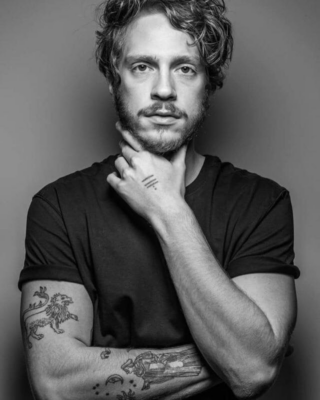YEREVAN / SÃO PAULO — Brazilian fencer, psychoanalyst, poet and translator William Zeytounlian de Moraes was born in 1988 in São Paulo. He started to practice fencing at the age of 15. William is a four-time four times Brazilian fencing champion and South American champion in 2015, he represented Brazil at the 2011 Pan American Games in Guadalajara, as part of the team that won the bronze medal in the men’s fencing. As psychoanalyst he graduated from Instituto D’Alma and took courses at Sedes Sapientiae. William holds a master’s degree in French History from the Federal University of São Paulo. In 2015 his poetry book Diáspora has been published by Demônio Negro label. Zeytounlian is also the assisting editor at Aller, a publishing house specialized in psychoanalysis.
William, you combine three main professions. Can you see similarities between, let say, fencing and poetry and psychoanalysis?
I consider the three of them different forms of art. Fencing is a martial art: it’s about using your body to defend and attack, anticipating the opponent’s thoughts — or creating them so that you can control the bout. Poetry is an art of language: it’s about using the linguistic material we inherit and share with others and creating new stuff with it — stuff that’s memory and novelty at the same time. Psychoanalysis, in its turn, is the art of listening: listening beyond what’s said, freeing an intimate truth hidden in the fabric of speech, thus relieving someone in pain.
In your essay “Political uncertainty in 2018: a collection of dreams and nightmares,” co-authored with Fabio Zuker, you bring together the nightmares of some interviewees’ regarding Brazil’s presidential election. Armenia is in political uncertainty for many years and our society has nightmares since the war of 2020. As a psychoanalyst what do you recommend us, living in a country sandwiched between two threatening enemies?
The nightmares we collected were the effect of a traumatic, harsh contact with the real: the anxiety related to the uncertainty for our lives and futures. Unfortunately, our worst dreams were proved right. Due to denialism, Brazil went through a catastrophe this last four years, with almost 700,000 deaths by covid. Also, we had a brutal Genocide against the Yanomami indigenous people, event denied as well. As we all know, a Genocide is not only about killing: it’s about denying the very act of erasing a people. As a psychoanalyst, I’d recommend the intensification of two labors I suppose Armenians are way more used to than Brazilians: remembering and mourning. The work of memory can cure our anxieties, and by working through what we lost — with those we lost — we can decide better what’s to be done next.

What does it mean being Armenian in Brazil?










